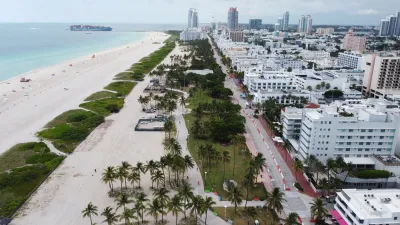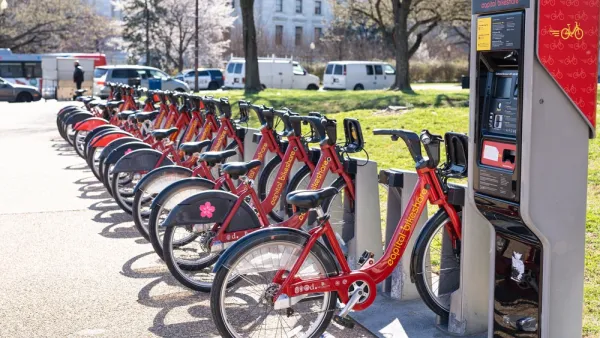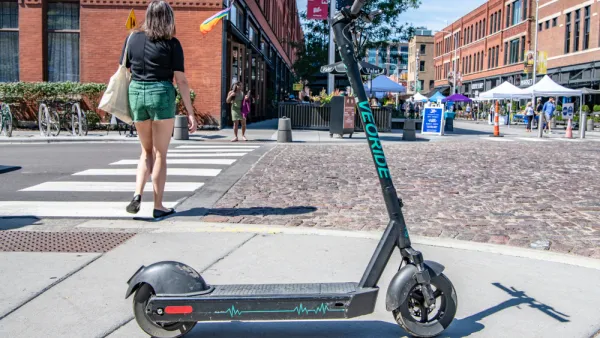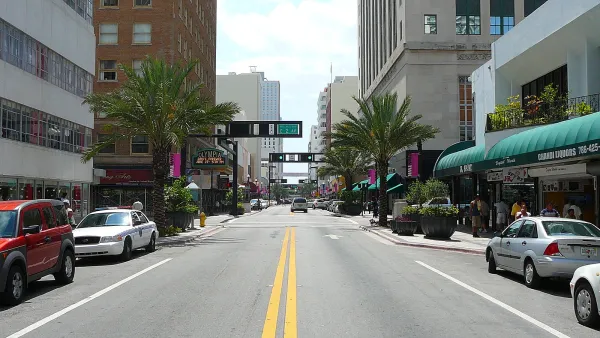After abruptly ending its shared e-scooter program last month, Miami is letting the devices return to its streets–with some new rules.

After ending its micromobility program on November 18, the Miami City Commission will reinstate the city's e-scooter program––with added safety requirements, reports Jason Plautz.
Supporters have touted scooters as an effective way to beat traffic in one of the country's most congested cities. However, their presence has long been controversial. Miami officials have pulled them several times even while managing the pilot, including during the COVID-19 pandemic and for a brief period in early 2021 over clutter concerns.
The city allowed scooter operators to return their devices to the street until at least after the holiday season, when the Commission will revisit the pilot program and potentially revise its regulations. While some commissioners view the scooters as a nuisance and sidewalk clutter, others believe the devices provide an important transportation option and a lucrative source of funding for protected bike lanes and other infrastructure. Others support the devices but want to see broader distribution to more neighborhoods, not just downtown areas popular with tourists.
The new rules require riders to wear helmets and reduce the number of scooters allowed per block. In the future, the city may institute speed regulations and shorter operating hours, according to Plautz. Earlier this year, Bird introduced 'Community Safety Zones,' high-activity areas where the devices automatically slow down, to improve safety and reduce the chance of scooter-pedestrian crashes.
FULL STORY: Miami set to temporarily restore scooters after ending pilot program

National Parks Layoffs Will Cause Communities to Lose Billions
Thousands of essential park workers were laid off this week, just before the busy spring break season.

Retro-silient?: America’s First “Eco-burb,” The Woodlands Turns 50
A master-planned community north of Houston offers lessons on green infrastructure and resilient design, but falls short of its founder’s lofty affordability and walkability goals.

Delivering for America Plan Will Downgrade Mail Service in at Least 49.5 Percent of Zip Codes
Republican and Democrat lawmakers criticize the plan for its disproportionate negative impact on rural communities.

Test News Post 1
This is a summary

Test News Headline 46
Test for the image on the front page.

Balancing Bombs and Butterflies: How the National Guard Protects a Rare Species
The National Guard at Fort Indiantown Gap uses GIS technology and land management strategies to balance military training with conservation efforts, ensuring the survival of the rare eastern regal fritillary butterfly.
Urban Design for Planners 1: Software Tools
This six-course series explores essential urban design concepts using open source software and equips planners with the tools they need to participate fully in the urban design process.
Planning for Universal Design
Learn the tools for implementing Universal Design in planning regulations.
EMC Planning Group, Inc.
Planetizen
Planetizen
Mpact (formerly Rail~Volution)
Great Falls Development Authority, Inc.
HUDs Office of Policy Development and Research
NYU Wagner Graduate School of Public Service





























